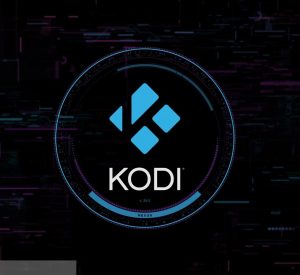The future of search engines in a world of AI and LLMs
4 min readTable of Contents
Throughout history, important milestones have been reached in the development of search engines. But will large language models (LLMs) change the search process again?
It all started with Archie, a small search engine in the 90s that indexed file names on FTP servers. Later, human-curated directories of Yahoo and AltaVista introduced – The keyword search has been improved.
The market presence of Google However, in the late 1990s, the entire world changed. Its PageRank algorithm, which ranks relevant websites based on links and content, created a new standard for the accuracy and speed of Internet searches.
But will Google and the familiar Search Engine Results Page (SERP) will continue to be our go-to source for search queries when chatbots powered by LLMs can crawl the web with context and provide us with detailed answers directly?
AI and LLMs: Better search through personalization and contextual information filtering
Despite significant advances, traditional search engines have several limitations that have become apparent over time.
For example, they often ignore contextual details by relying solely on keyword results without capturing subtle connections.
In the age of instantly available information, artificial intelligence (AI) is very popular.
The amazing developments such as text generation and summarization, language translation and sentiment analysis, and code generation, not to mention their role as conversational agents, have redefined the way we interact with information, providing unparalleled efficiency and accuracy in navigating the digital world.
LLMs are neural networks made up of billions of interconnected neurons and represent the culmination of decades of research in natural language processing and machine learning.
Their incredible ability to understand and produce human-like text makes them one of the main innovations in the field of computer technology.
LLMs can master the complexities of language, understand the context and provide precise answers. In doing so, they have overcome the previous limitations of word processing.
You can analyze massive amounts of data and convert it into a user-friendly format. In fact, LLMs have evolved beyond mere tools. Rather, they have become reliable companions in our search for knowledge.
There is no question that AI and LLM play an essential role in the advancement of web search.
The user’s contextual knowledge and intent have been captured by AI-driven search engines like Google RankBrain expanded, enabling personalized and relevant results.
At the same time, LLMs are shifting like GPT-3 the limits of developing search technologies by allowing natural language queries and generating amazingly human-like responses, representing a significant step forward.
On the subject: Insights: The change in GPT models in AI, from GPT-1 to GPT-4, broken down
The role of personalization
AI algorithms can accurately analyze a user’s search history, preferences and behavior and tailor search results to individual needs.
This approach improves the relevance of search hits and simplifies the interaction between users and the huge flood of information they navigate every day.
This eliminates the need to conduct overly specific or rigid keyword searches. This makes the research process more intuitive and user-friendly.
A central goal of these advances is also to reduce the flood of information.
Conventional search engines often overwhelm users with an excess of results. However, with the support of AI in filtering and ranking according to relevance, users are now presented with a manageable and meaningful selection of information.
This significantly refines the search experience and even the results “just in time“ delivered.
Multilingual capabilities of AI-driven search engines
Global communication has changed significantly thanks to the multilingual capabilities of AI-driven search engines.
These models have achieved great success by removing language barriers and providing access to even more information.
The result is an unprecedented opportunity for people from different linguistic backgrounds to connect, communicate and access a diversity of knowledge and cultural insights.
A look into the future of AI-powered search
The future reveals immense potential for AI-powered search engines.
The continued advances in the field of artificial intelligence will undoubtedly improve the intuitiveness and precision of search engines.
Additionally, integrating AI-based search with new technologies such as augmented reality and blockchain opens up the possibility of transforming the way we receive information. Thus, the technology offers an interactive and safe experience.
In addition, society will be significantly shaped by the crucial role of AI in search in various areas, e.g. B. by revolutionizing medical diagnostics, improving educational levels and supporting disaster relief.
Bottom line
In this new environment, AI-powered search will prove to be an indispensable tool for tackling complex societal challenges, paving our way to a more connected, knowledge-based future where information drives progress and innovation.
The future of AI-driven search engines powered by LLMs promises a transformative digital era.
The LLMs are in the process of significantly increasing the efficiency and accuracy of search engines.
Added to this are new technologies that will fundamentally change the way we use information.
Despite the challenges and ethical issues, AI-based search can solve societal problems and advance humanity’s knowledge.
Crypto exchanges with the lowest fees 2023






